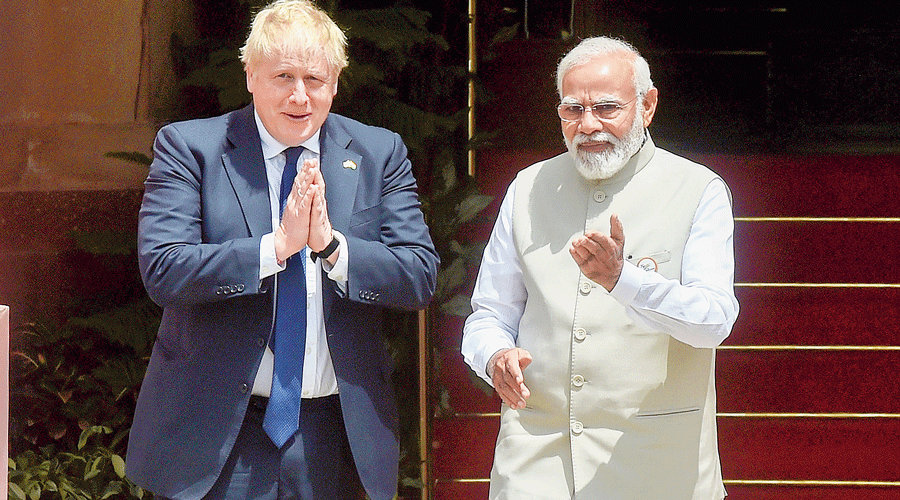If there is one Western country that knows India well, it is the United Kingdom. The British prime minister, Boris Johnson, demonstrated that amply during his visit to India. That is good for New Delhi — in some ways. At a time when many Western governments have publicly or privately put pressure on India to openly condemn Russia for its invasion of Ukraine, Mr Johnson was clear that he would not follow that approach. Deviating from the more aggressive stance of his own foreign secretary, Liz Truss, a few weeks ago, the British prime minister admitted that India’s position on Russia was not going to change. India has repeatedly sought diplomacy to end the war and expressed concerns about the civilian massacre in Bucha while refraining from joining Western sanctions against Moscow. Mr Johnson is right. Western public pressure of the kind India has witnessed invariably makes New Delhi — irrespective of which party or leader is in power — bristle and buckle down on its existing strategy. Instead, Mr Johnson focused on tangible accomplishments. The visit saw India and the UK deepen their strategic relationship. Mr Johnson promised to help Indian prime minister, Narendra Modi, build fighter jets. Most significantly, the trip yielded a Diwali timeline for the completion of the negotiations on a free trade agreement between the two nations.
Yet, knowing someone well is to know his or her weaknesses too. Mr Johnson appears to have concluded that flattery works in New Delhi, at least at the moment. There was plenty of evidence of that — chumminess with “Narendra” whom Mr Johnson called his “khas dost”; references to Sachin Tendulkar and Amitabh Bachchan; acknowledgement of India’s status as the world’s largest democracy. Other world leaders would do well to learn from Mr Johnson. India would do well to ignore the words and focus on the facts. There is much that India stands to gain from its relationship with Britain, a powerhouse in innovation, higher education, high-end technology and financial services. But right now, Britain’s prime minister needs this partnership to deliver more urgently than Mr Modi does. Mr Johnson is under growing pressure to resign over the violations of Covid-19 protocols by him and his team. The free trade deal under discussion is particularly vital for a post-Brexit UK. Seventy-five years after India won independence from Britain, the balance of power between the two has shifted. New Delhi must use that to its advantage.











